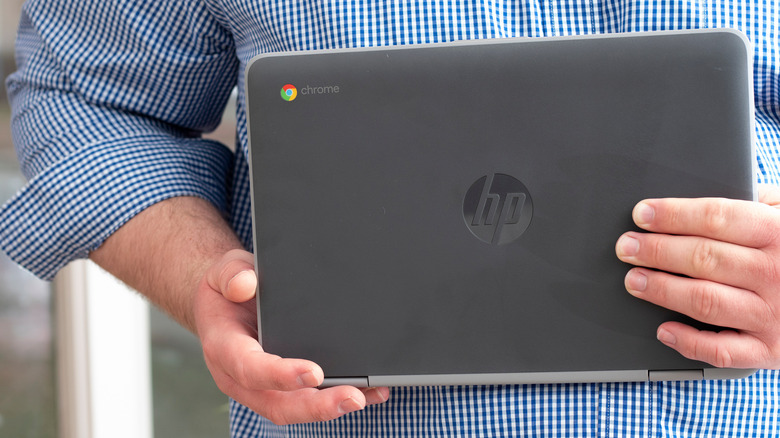How To Check Your Chromebook’s Expiration Date (And Why It’s Important To Know) – SlashGear
Are you interested in purchasing a Chromebook but uncertain how long the model will last? Just like smartphones have a tentative lifespan, Chromebooks do too. The key factor in determining that is the Automatic Update Expiry date, or AUE. The AUE is the device’s expiration date, after which the machine won’t receive any updates.
Whether it’s for browsing the internet or running the latest apps, Chromebooks rely heavily on software updates. These hybrid devices automatically install enhancements that provide new features and protect against security vulnerabilities, if any arise. Per Google’s support page, the rollout of these updates depends on the manufacturer. For instance, if you purchase a model from Lenovo or HP, these companies rely on Google for Chrome OS updates. Since Google isn’t manufacturing the device itself, it is difficult for the company to keep tabs on every model. And that is why these machines have an expiry date.
Initially, Chrome OS-powered laptops would only last a few years before hitting their AUE. Recently, the company suggested the devices lasted up to eight years. Here’s how you can check your AUE.
How to check your Chromebook’s AUE
There are two ways to check a Chromebook’s AUE: on the device and through Google’s support page. While the first method would be more suitable if you already have a Chromebook, the second one comes in handy if you’re looking for new devices. It is important to know that Google doesn’t announce the device’s AUE before the manufacturer releases the product.
To check your Chromebook’s AUE, follow the steps given below.
- Click the battery icon at the bottom right corner of the home screen.
- In the pop-up menu, select the cog-shaped settings icon.
- Click About Chrome OS at the bottom left side in the following window. If you don’t see the option, click on the hamburger menu (top left) to open the navigation panel. Alternately, you can type About Chrome OS in the search bar.
- Select Additional Details and see what the message reads under Update Schedule.
- Suppose your device is well within the update expiry date. In that case, you should see a message with the AUE.
- If your device is past its expiry date, you will see a message that reads, “This device will no longer receive software updates. You can continue using your computer but should consider upgrading.”
Check a Chromebook’s AUE online
If you want to check the update expiry date of a Chromebook you wish to purchase, Google lists the AUE for all models on its Auto Update Policy support page. However, you need the device’s model number. Generally, the model number is available in the product’s listing on e-commerce platforms.
- Open Google’s Auto Update Policy webpage.
- Select a manufacturer from the list.
- Search for the model in the list. You can also press Ctrl + F and enter the model number in the text field to locate it.
- Next to the model number, you can check its AUE.
It is essential to check a Chromebook’s expiration date as it determines how long it will last. While purchasing the device, especially at a discounted price, check the AUE as the model could be nearing its expiration date. If that is the case, you won’t be able to get much use out of the device. What happens when a Chromebook passes its AUE? Without any hardware issues, the device keeps functioning like it usually does. However, since the device isn’t getting any security updates, it is at considerable risk. Eventually, the Android apps would also stop running on an outdated device.
Here’s the expiration date of some current Chromebook models on the market.
- Lenovo Flex 5i – Jun. 2030
- Samsung Galaxy Chromebook 2 – Jun. 2028
- Acer Chromebook Spin 714 – Jun. 2030
For all the latest Gaming News Click Here
For the latest news and updates, follow us on Google News.



